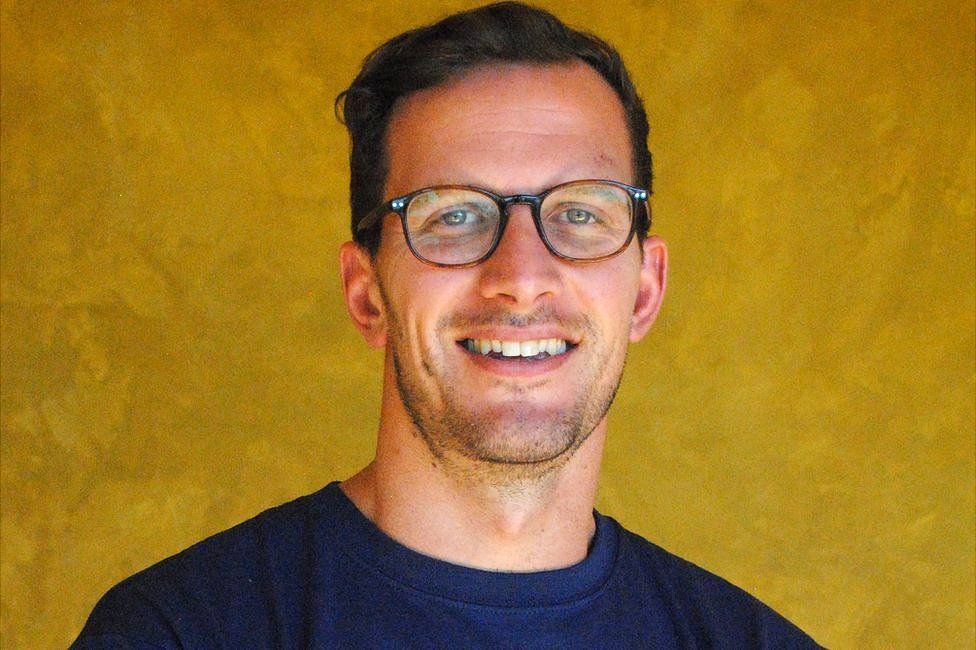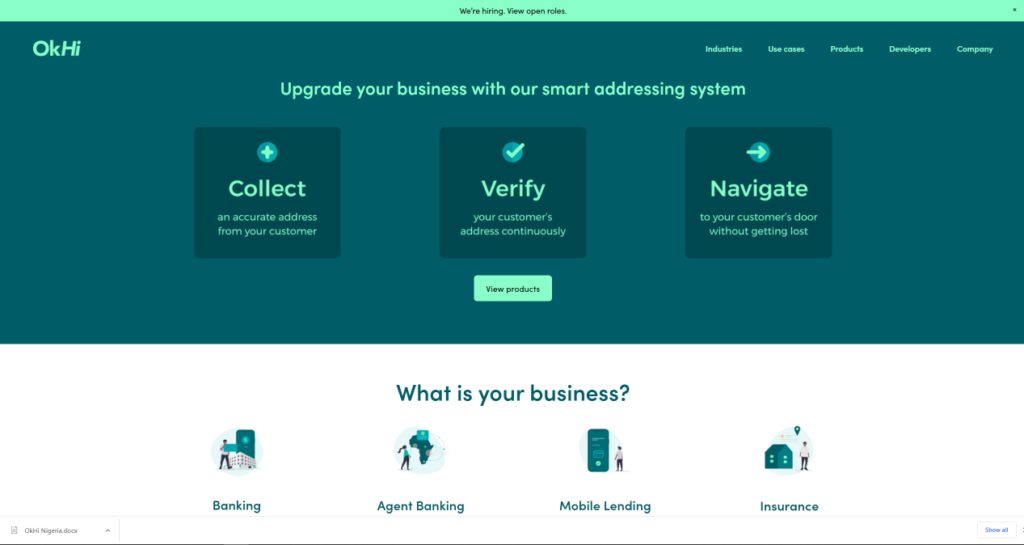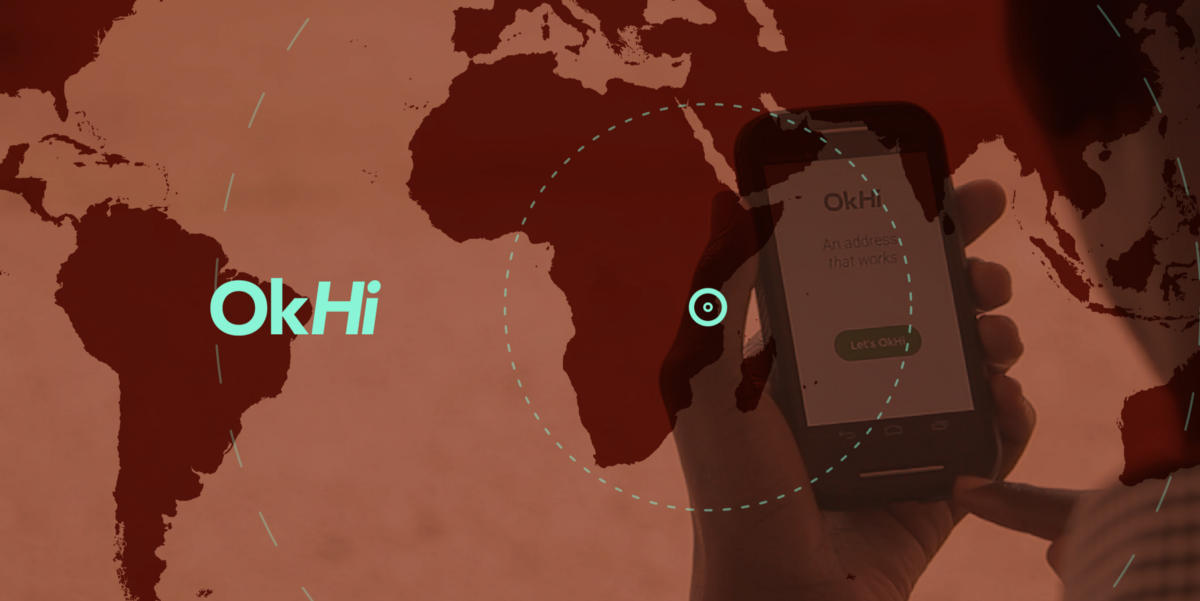Globally, more than 75% of countries have poor or no street-addressing systems, according to the United Nations. This lack of addressing systems affects 4 billion people, more than 400 million of them in Africa, and costs businesses billions of dollars annually.
Address infrastructure is an essential public good and its lack is a major drawback, both for the unaddressed and service providers. Without an address, it’s almost impossible to be reached or receive delivery of goods or financial services.
OkHi founder and CEO, Timbo Drayson, encountered this problem for the first time while on a sabbatical travelling across East and West Africa in 2014. Having led the launch of Google Maps in Europe, the Middle East, and Africa during a seven-year spell at Google, the Oxford-trained engineer realised the product didn’t exactly work as expected in African markets.

“I saw firsthand how the lack of formal physical addressing had a detrimental impact on businesses like Jumia delivering an item, the Red Cross finding a casualty, or Standard Bank verifying a customer’s address,” Drayson told TechCabal. That experience inspired the founding of OkHi, a digital address verification startup that commenced operations in Kenya in 2014.
Through its products – OKCollect, OKVerify, and OkGo – the company enabled businesses, from e-commerce to ride-hailing startups, to collect accurate addresses with a GPS and photo from their customers, verify the information using smartphone data and help agents navigate to the locations without getting lost.
Pivoting from Kenya
In Kenya, OkHi claims to have verified over 300,000 addresses as well as reduced cost of delivery by 20% for KFC, pick up time by 40% for Uber and increased Jumia’s net promoter score (NPS) by 35%.
Last December, it launched in Nigeria on the back of a $1.5 million fundraise led by Interswitch, Founders Factory Africa, and Betatron venture capitalists. The startup has secured $2.5 million in funding till date, according to Crunchbase data.
Rather than an expansion, however, the entry into Nigeria is a pivot. In 2020, OkHi changed its model from collecting addresses for mobility businesses in Kenya to verifying addresses for financial services companies in Nigeria.
Drayson describes the move as a tough decision. “We had 300,000 addresses in Kenya and were generating revenue. However, our hypothesis was that we can build our address database faster by providing digital address verification for financial services.”
Why was Nigeria the target? He explains that both the problem space and opportunity were bigger in Africa’s most populous economy than in Kenya. “Nigeria has the most sophisticated financial services sector in Africa; it is strictly regulated, including the need for proof of address; and the country has 200 million people.”
A smart address system
Most banks require utility bills and send human agents to verify prospective customer addresses in person, as part of a mandatory Know Your Customer (KYC) procedure. The process is not only time-consuming and costly but also limits access to financial services.
With OkHi, Nigerians can share their locations with one tap on any OkHi-enabled service. This replaces the need for physical address verification, which is unappealing to many who see it as invasive.
“By making it easy for people and businesses to verify their address, OkHi will enable more and more people to prove who they are and get access to finance,” Drayson says.

OkHi is going live with its first set of customers in Nigeria, and recently completed a successful pilot with Stanbic IBTC. In addition to providing capital, Interswitch is a strategic partner to the startup. The Lagos-based payment processing firm has a relationship with all the major banks and is OkHi’s route to the Nigerian market.
“The premise of the relationship [with Interswitch] is based on the fact that they serve our entire target customer base [banks and fintechs]. We are go-to-market partners.”
Although OkHi’s primary target clients are financial services providers, the company has plans to serve other businesses that need address verification, including last-mile delivery companies and emergency services like ambulances.
“Consumers can think of OkHi like Paypal. They create their OkHi address with one business and then they can use their address with other services. With one tap of a button, a person can prove their address for a bank, get a delivery to their door, and share their address with a friend – that’s a world with OkHi,” Drayson says.
OkHi is currently hiring across multiple departments and the CEO is confident about the company generating revenue from the fourth quarter of this year. It makes money by charging clients for each address verification.
“From Kenya to Nigeria to the world! We would like to see the impact of OkHi spread far and wide, with people in hundreds of countries using it in their everyday life,” Drayson says.
If you enjoyed reading this article, please share it in your WhatsApp groups and Telegram channels.



















